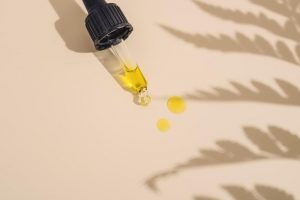The Scotsman – Promoted by Halal CBD
 While dietary preferences based on allergies or ethics can make choosing a particular food supplement difficult, it is religious dietary lifestyles that often prove the most complicated.
While dietary preferences based on allergies or ethics can make choosing a particular food supplement difficult, it is religious dietary lifestyles that often prove the most complicated.
The intersection between religious dietary laws and the exploding market for cannabidiol (CBD) is no exception, with some Muslims voicing concerns that CBD may not be halal or permissible to consume under their faiths’ guidelines.
CBD and Halal: Is CBD Oil Halal?
Considering that CBD is derived from hemp or cannabis plants, both of which contain varying quantities of THC (tetrahydrocannabinol), there are concerns about its status as halal. While it’s important to note that the psychoactive compound in cannabis is not present in CBD products, some Muslims still perceive CBD as a haram product in Islamic faith due to its association with THC’s psychoactive properties.
So the argument becomes: If CBD products contain no THC, as is the case with CBD isolate and broad-spectrum CBD formulas, is it halal?
Some Muslim scholars believe that if a CBD product is derived from hemp and contains no THC or other psychoactive agents, it should be considered halal so that it can be used for its health benefits. But others aren’t so sure, believing CBD’s status as haram depends on the plant it came from (hemp vs cannabis) and how it was sourced.
Furthermore, since non-halal items such as food additives like gelatine or alcohol are often used in CBD processing, some Muslims claim they cannot consider it halal because certain ingredients might render it haram.
And with the advancements in the health food industry, much of the food and drink we consume can now be made with halal-friendly products like vegetable-based capsules, GMO-free rice paper and water-based glaze for CBD sweets.
What CBD Products Are Not Halal?
While there may be controversy surrounding whether or not all CBD products are halal, there is a clear consensus regarding specific CBD products that are not considered halal under Islamic guidelines.
One example is any CBD product that is considered to be a full-spectrum CBD oil. Full-spectrum CBD products contain full-plant parts and an unfiltered amount of cannabinoids, including THC, in their formula.
Even though UK law mandates that the amount of THC be less than 1mg per CBD product container, an amount that will not likely cause any sort of psychoactive reaction, it’s still not halal because THC is present.
Additionally, any CBD capsules made using bovine gelatine or other non-halal food-grade capsules will not be considered halal as well. While the gelatine in these capsules may not contain any alcohol, it is still non-halal because it comes from a haram animal source.
Some CBD edibles, such as gummies, may also be considered haram if they are made with food dyes sourced from animal by-products or contain traces of alcohol from the manufacturing process.
Basically, if a CBD product contains any trace of THC, animal by-product, or involves a manufacturing process using alcohol, it can be considered haram and not halal.
How Can I Know if a CBD Product is Halal?
If you subscribe to the notion that CBD products that don’t contain any trace of THC, are sourced from hemp plants, and don’t use any alcohol in their extraction or refinement processes are halal, that opens up many options.
When shopping around for CBD products that could be considered halal, look for ones that meet the following criteria.
*Broad-Spectrum CBD
Broad-spectrum CBD formulas such as tinctures, creams, capsules, and edibles contain all beneficial cannabinoids and terpenes found in the plant. However, what classifies them as a halal product is the fact that broad-spectrum formulas undergo additional refinement to remove any trace of THC and other psychoactive cannabinoids such as CBN and Delta-8/9 THC. These cannabinoids are known for their psychoactive properties, which, in addition to being a controlled substance in the UK, is why they are filtered out of the hemp extract.
Broad-spectrum CBD oils typically use an MCT or hemp seed oil carrier oil to enhance bioavailability and offer a full-plant CBD experience without any psychoactive effects. These oils are generally considered halal.
*CBD Isolate Oil
Not everyone that takes CBD products is looking for a host of cannabinoids or other added ingredients. Instead, many CBD consumers in the UK simply want a product that contains nothing but pure CBD and MCT oil for maximum absorption.
Free from THC, psychoactive cannabinoids, terpenes, and other plant materials, CBD isolates are considered the purest, and if made using a halal carrier oil such as hemp seed oil or fractionated coconut oil, they can be 100% halal.
CBD isolates are often the base for a variety of CBD products, including topical skincare creams, CBD capsules, and CBD gummies. Therefore, finding lab reports that verify the purity of a CBD isolate formula is extremely important.
Pro Tip: Some manufacturers will sell a CBD isolate product that contains no THC but may still be formulated with non-halal ingredients such as gelatine, dye, and alcohol. Make sure to always check the ingredients and avoid purchases without detailed lab reports verifying the purity of the CBD isolate and the presence of halal-friendly ingredients.
*Vegan & Cruelty-Free
Looking for certified vegan and cruelty-free CBD products will help ensure that the products are not sourced from any animal by-product that wasn’t killed and prepared under halal guidelines described in the Qur’an.
Vegan and cruelty-free products will also have a much better safety profile as they avoid using some of the chemicals found in non-vegan or animal-tested products, such as artificial dyes, parabens, and alcohol.
Pro Tip: If you combine your online search for a quality CBD product by using the keywords “vegan” and “cruelty-free”, you’ll limit your search to products that are safe for vegans, people with halal dietary standards, and Muslims looking for cruelty-free CBD options.
Remember that before purchasing any CBD product, it is highly recommended to do your own research. That means contacting the CBD company you want to purchase from to verify the information on their website fall in line with the tenets of Islam.
Halal-Friendly CBD Products in the UK
Whether or not you think CBD is halal, it is essential to know which CBD brands can be safely consumed by Muslims and those following a halal diet. Many great companies are offering high-quality CBD products that fall in line with the tenets of Islam.
Remember that not all CBD products are made the same, and your own research will be required to ensure your health and wellness needs are met with a high-quality, halal-friendly CBD oil product.



